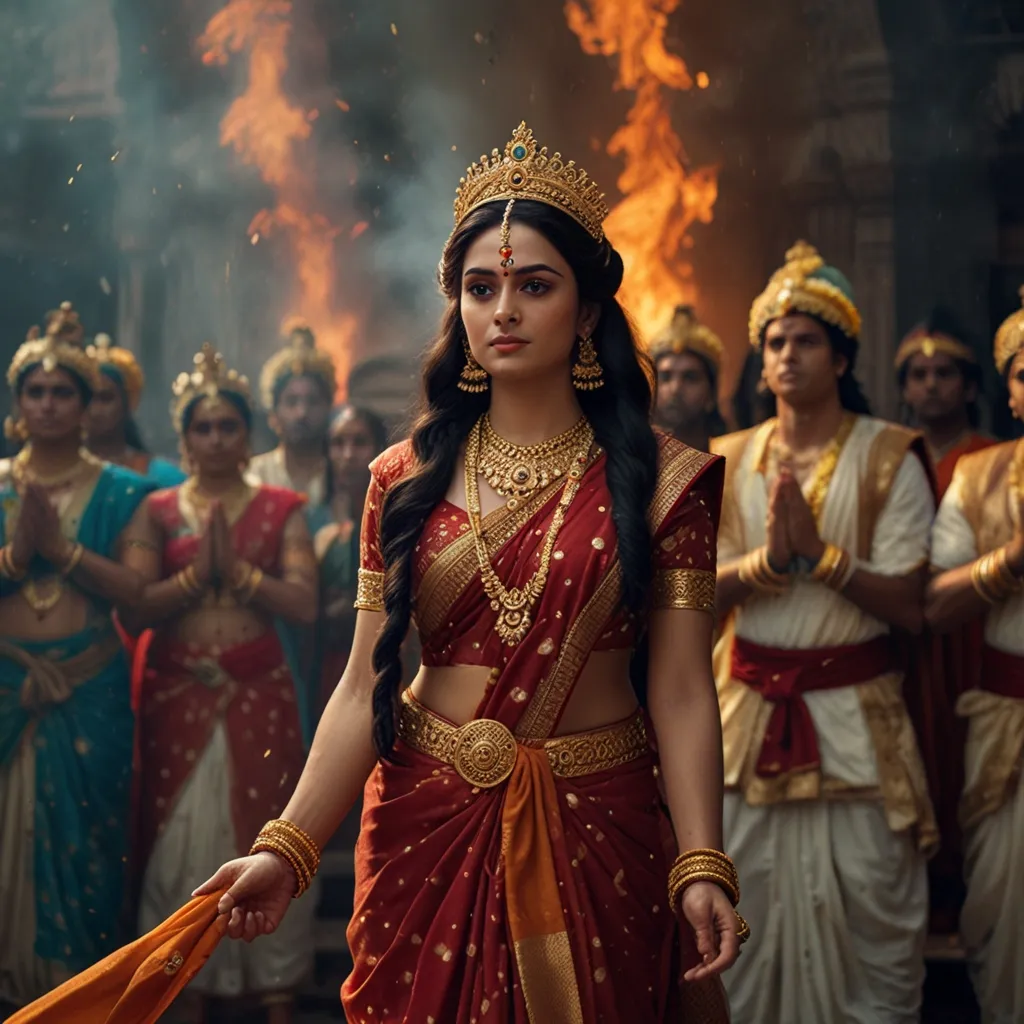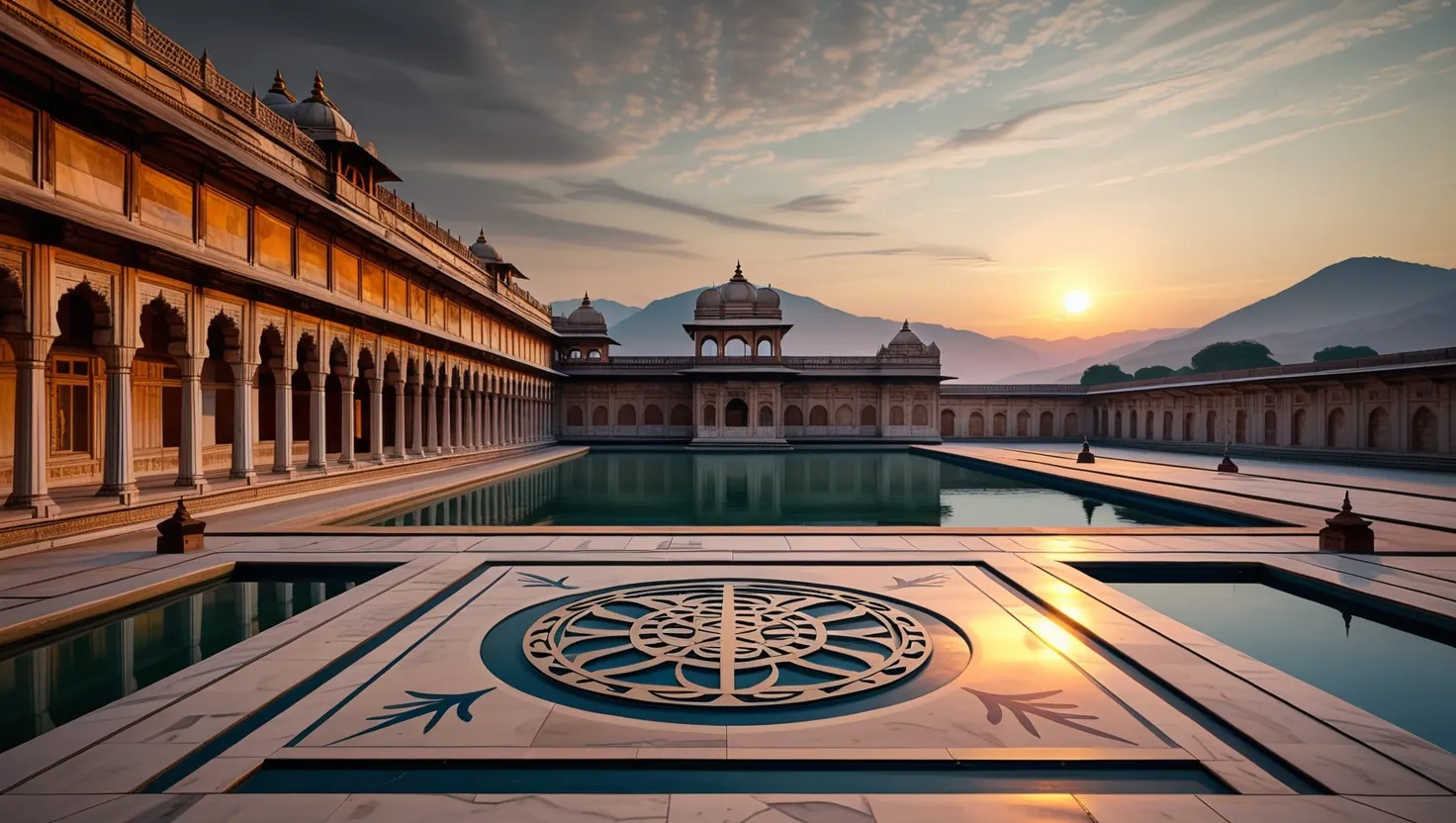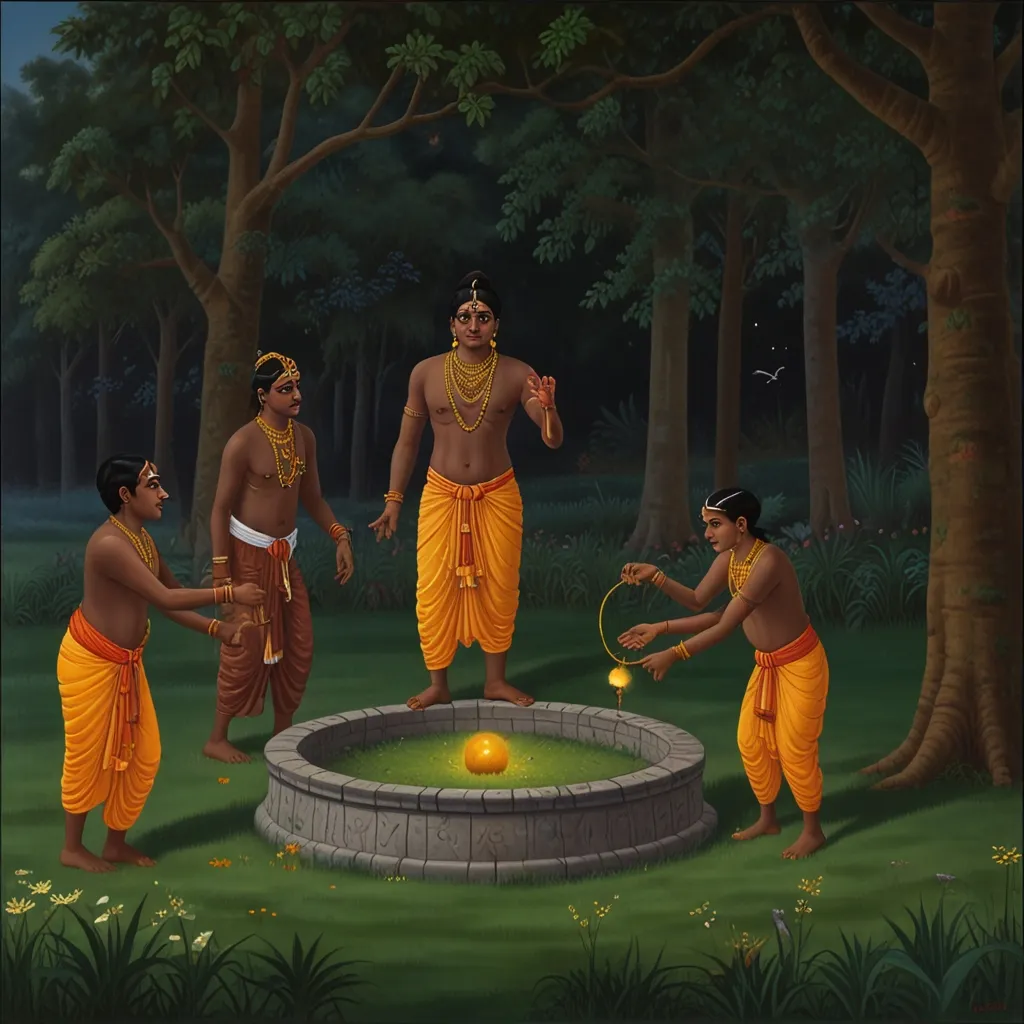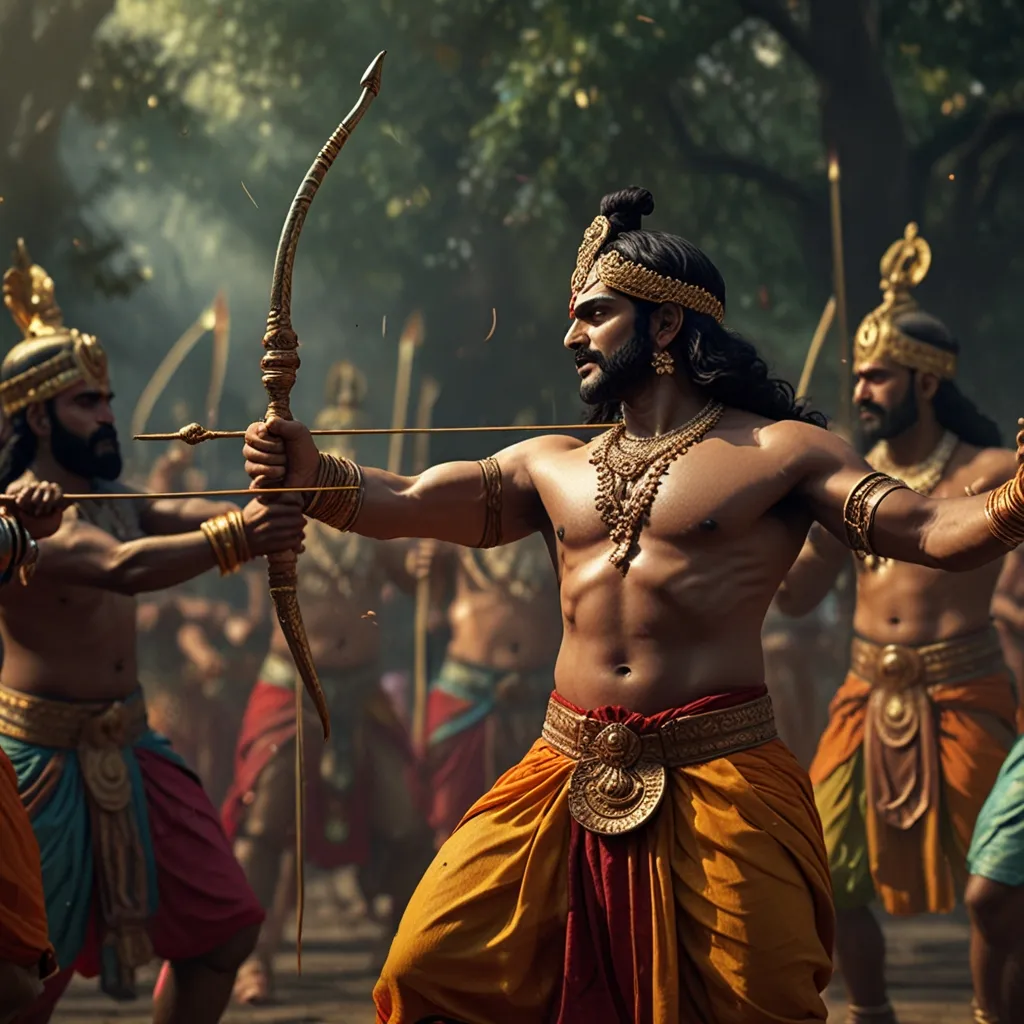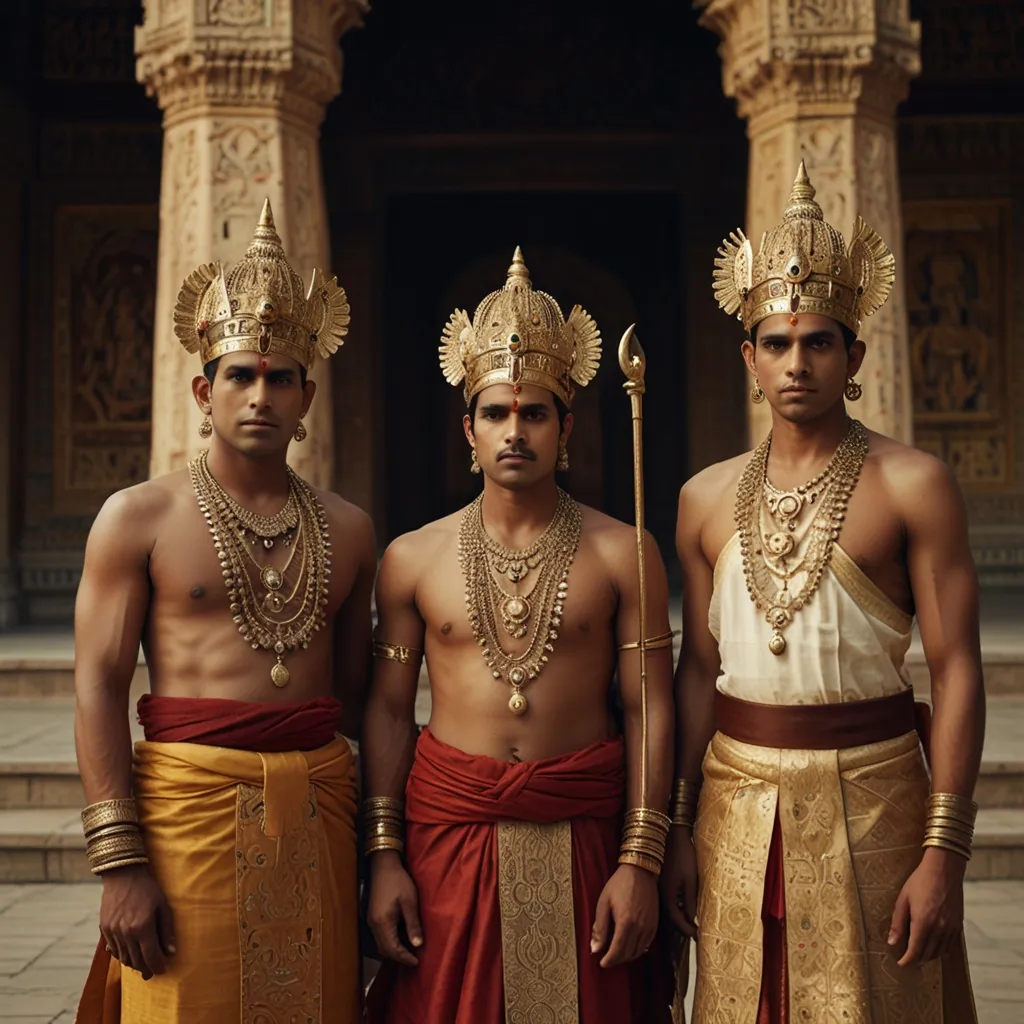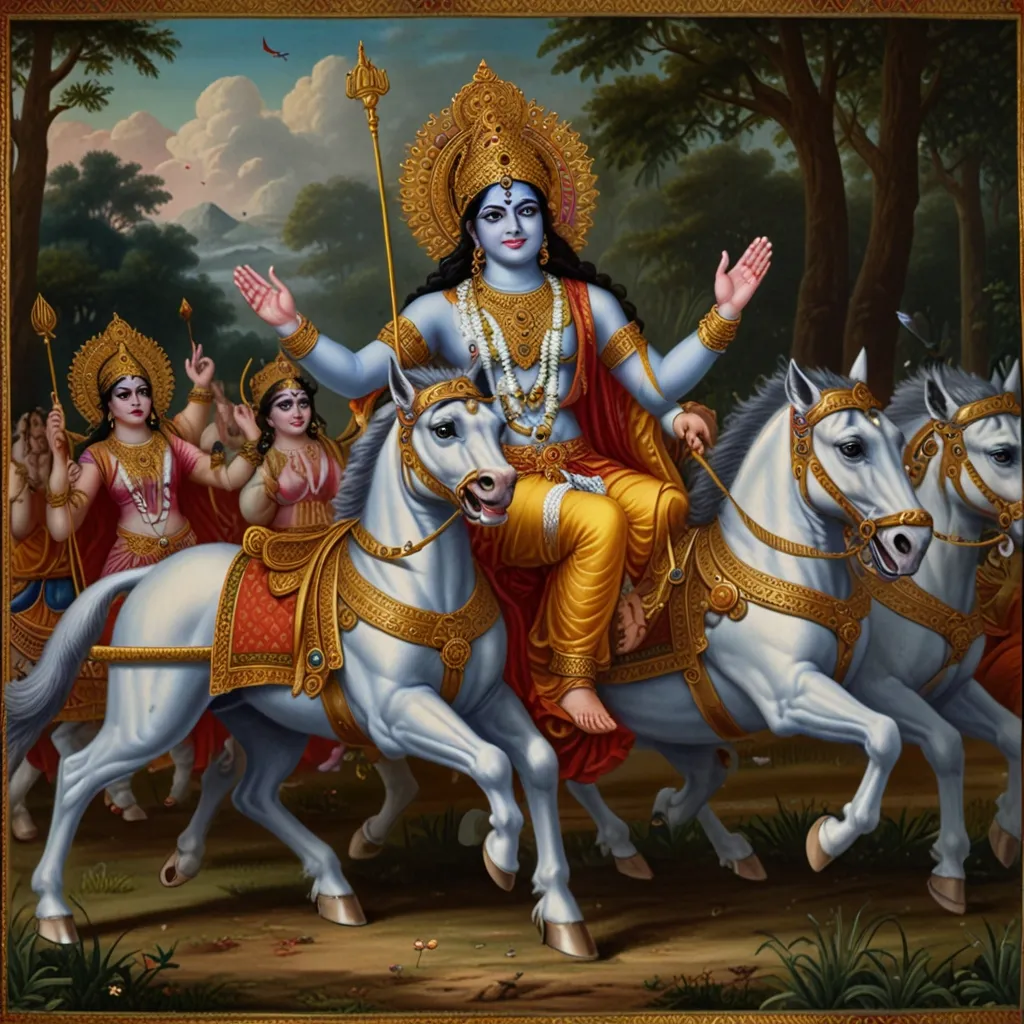In the grand tapestry of the Mahabharata, few characters stand out as vividly as Draupadi. Her story is a remarkable blend of strength, tenacity, and the fascinating twists of fate that knit her life with the Pandavas. Central to her journey is Krishna, whose divine hand shapes not only her destiny but the fortunes of her husbands.
Draupadi’s tale kicks off with quite a dramatic entrance. She and her twin brother, Dhrishtadyumna, spring forth from a sacred fire, thanks to a ritual conducted by their dad, King Drupada. As she grows older, her swayamvara—an ancient match-making event—is where the plot thickens. Here, Arjuna, disguised as a Brahmin, wins Draupadi’s hand in marriage by showcasing his archery skills.
But hold on, things aren’t that straightforward. Upon returning home, Arjuna blabs about his victory to his mother, Kunti, without mentioning Draupadi. Kunti, unaware, tells him to share the ‘prize’ with his brothers. This seemingly innocent command propels Draupadi into a polyandrous marriage with all five Pandava brothers: Yudhishthira, Bhima, Arjuna, Nakula, and Sahadeva.
Enter Krishna, the divine prince of Dwaraka and BFF of the Pandavas. He steps in to explain Draupadi’s unusual marriage. Turns out, in her past life, Draupadi had prayed to Shiva for a husband with a cocktail of qualities: honesty, power, skill, fearlessness, and good looks. Shiva, being the practical god he is, tells her that no one guy has it all, so she gets five husbands in her next life. Krishna’s wisdom helps Draupadi wrap her head around this odd yet predestined situation.
Living with five husbands means some ground rules. Krishna suggests a rota system where Draupadi spends one year with each husband, ensuring respect and privacy. This setup isn’t just about logistics; it’s a lesson in self-discipline and detachment. Despite the hurdles, Draupadi becomes an emblem of female power and poise. She gives birth to five sons—one from each husband—collectively known as the Upapandavas.
Krishna’s influence doesn’t end at Draupadi’s marital arrangement. He’s the Pandavas’ go-to guy for all things tricky. Take the notorious game of dice, for example, where Yudhishthira gambles away everything, including Draupadi. When Dushasana, one of the Kauravas, tries to disrobe Draupadi in public, Krishna saves the day. He extends her sari infinitely, preserving her dignity and shaming her tormentors.
Krishna’s divine presence weaves through the ups and downs of Draupadi’s life and the greater narrative of the Mahabharata. He stands by the Pandavas during their exile and helms them through the cataclysmic Kurukshetra War. His teachings on dharma (cosmic order) and his divine aura inspire the Pandavas to uphold justice and righteousness.
Draupadi’s saga is as heartrending as it is inspirational. She endures the pain of losing her father, brothers, and sons in the war but remains a pillar of support for her husbands. Post-war, she steps into the role of the empress of Indraprastha with an unmatched blend of grace and efficiency. She oversees the treasury and serves as a liaison with the citizens, showcasing her impeccable administrative skills. Her journey ultimately concludes in the Himalayas alongside her husbands, marking an end to an era steeped in valor and sacrifice.
Krishna’s intervention in Draupadi’s life not only aligns her fate but sets into motion the broader events of the Mahabharata. He ensures that Draupadi’s unique circumstance becomes a driving force in this grand epic, solidifying her status as one of the most intricate and revered female figures in Hindu literature.
